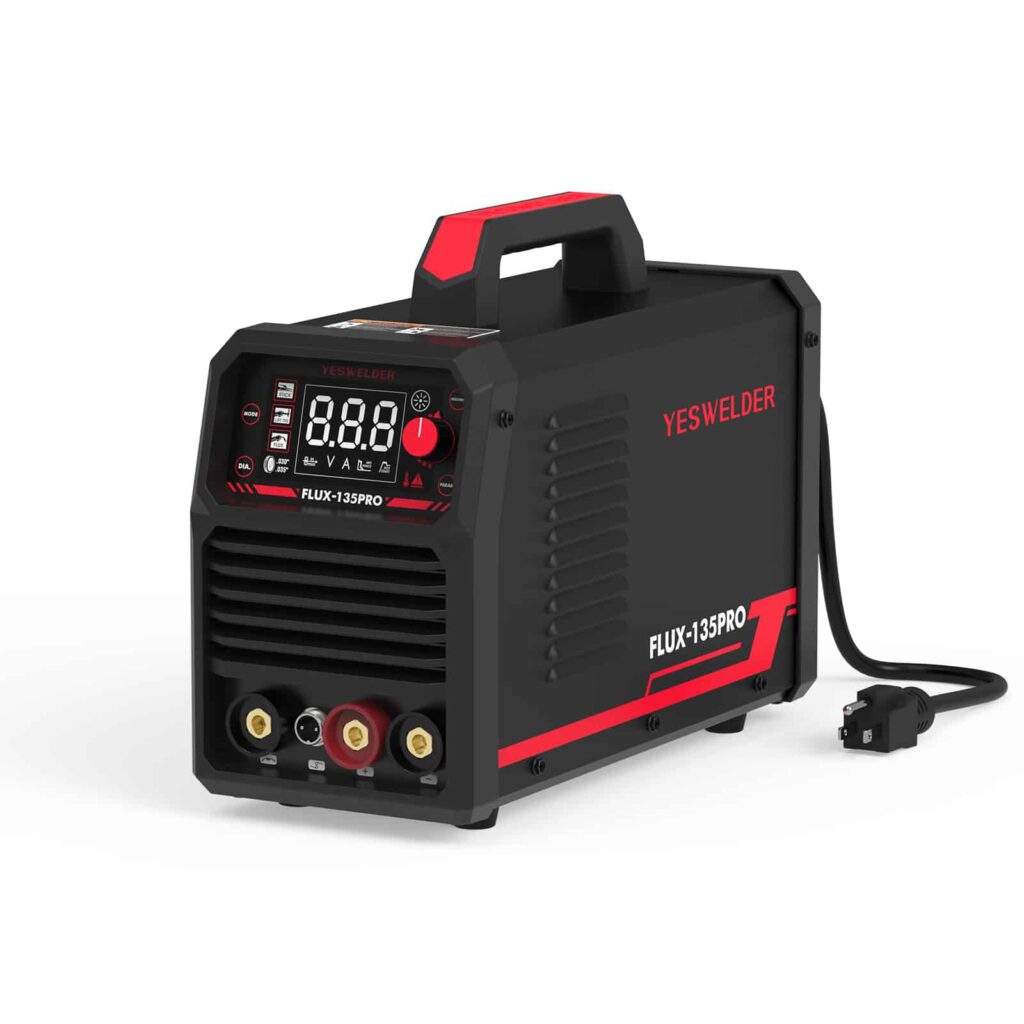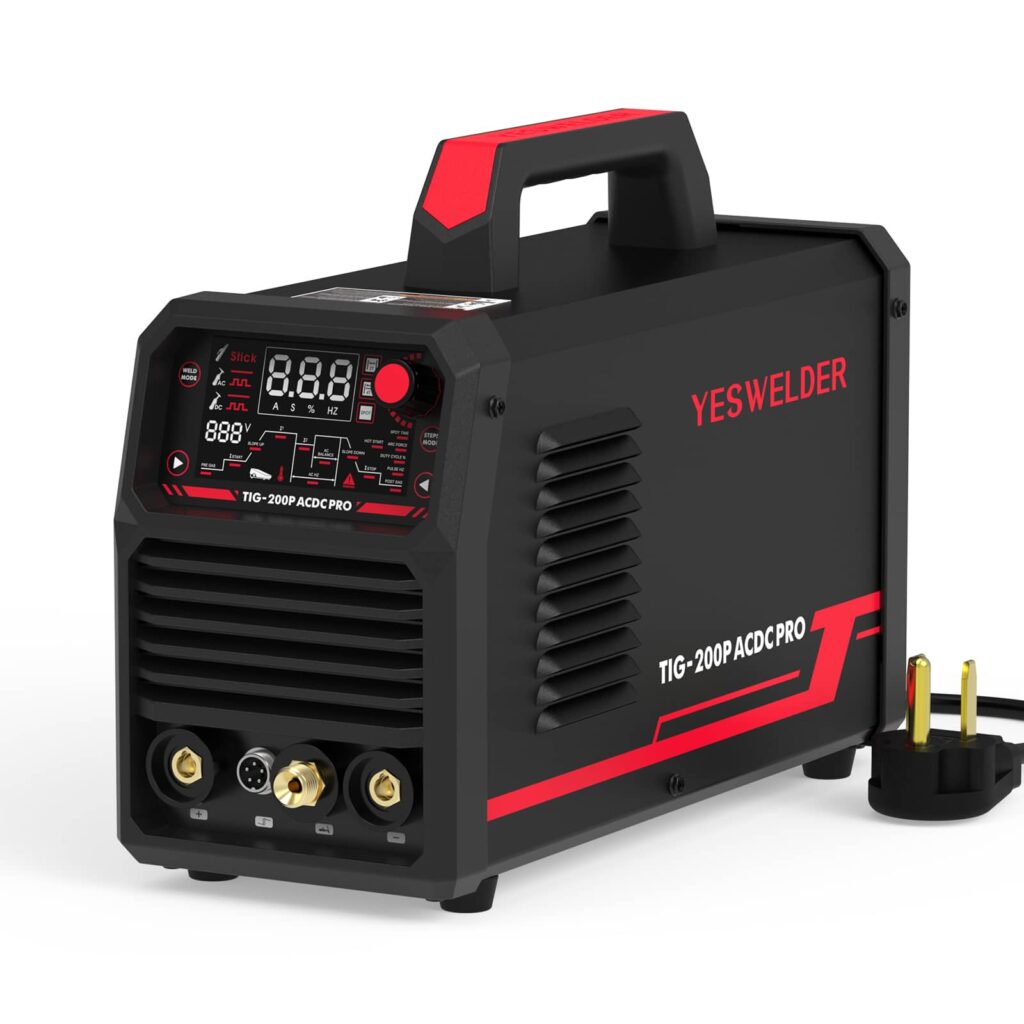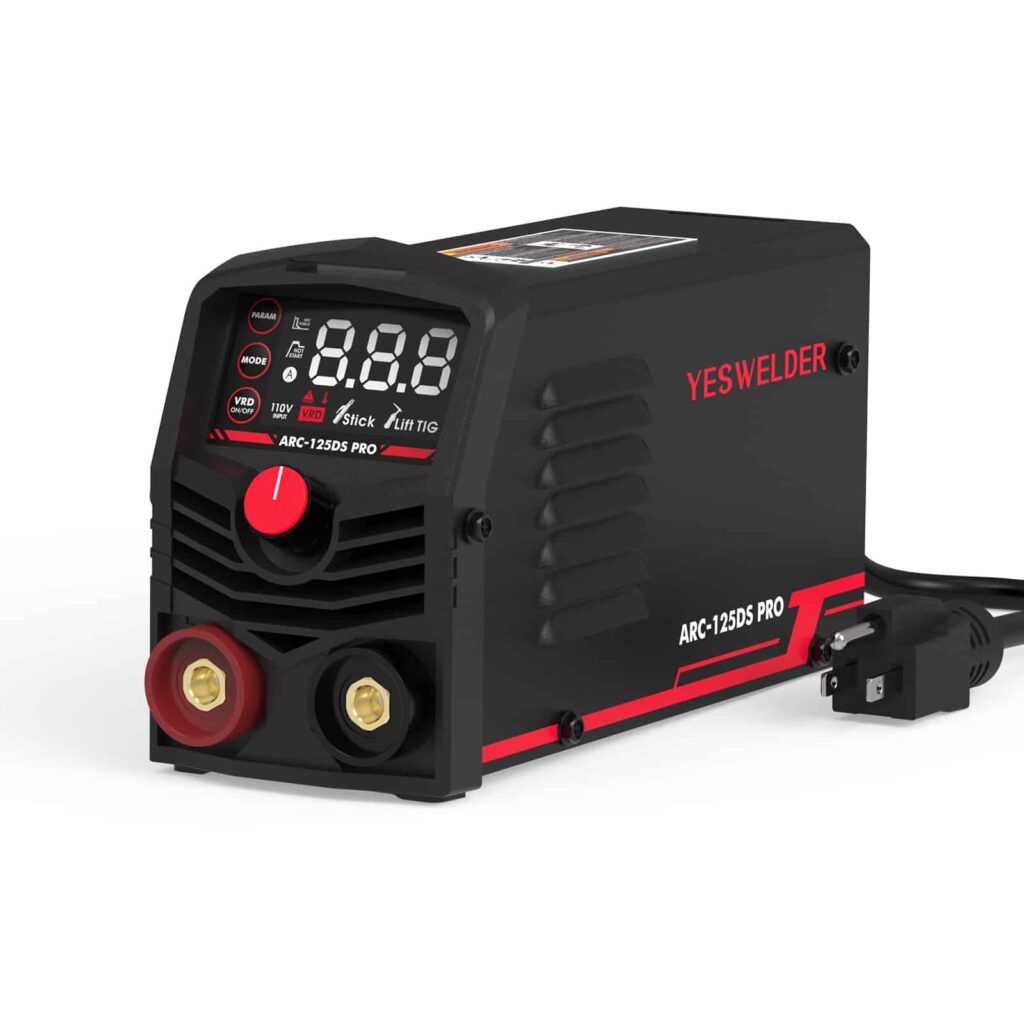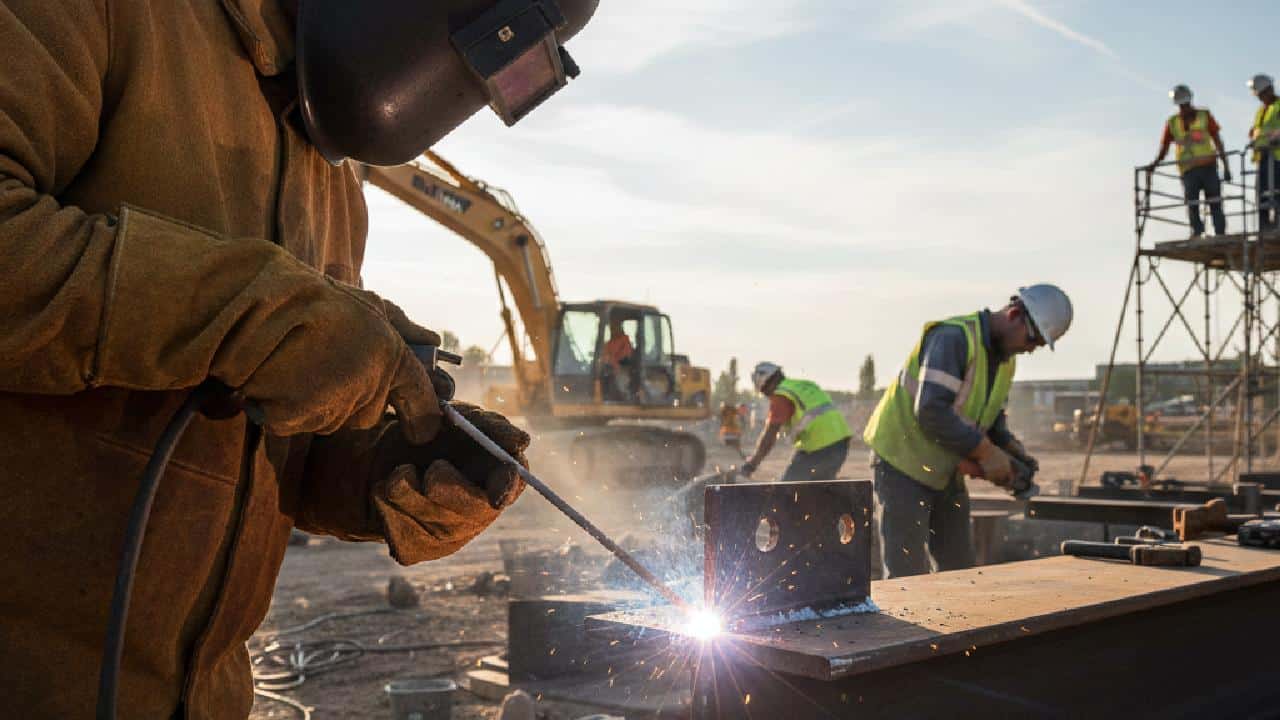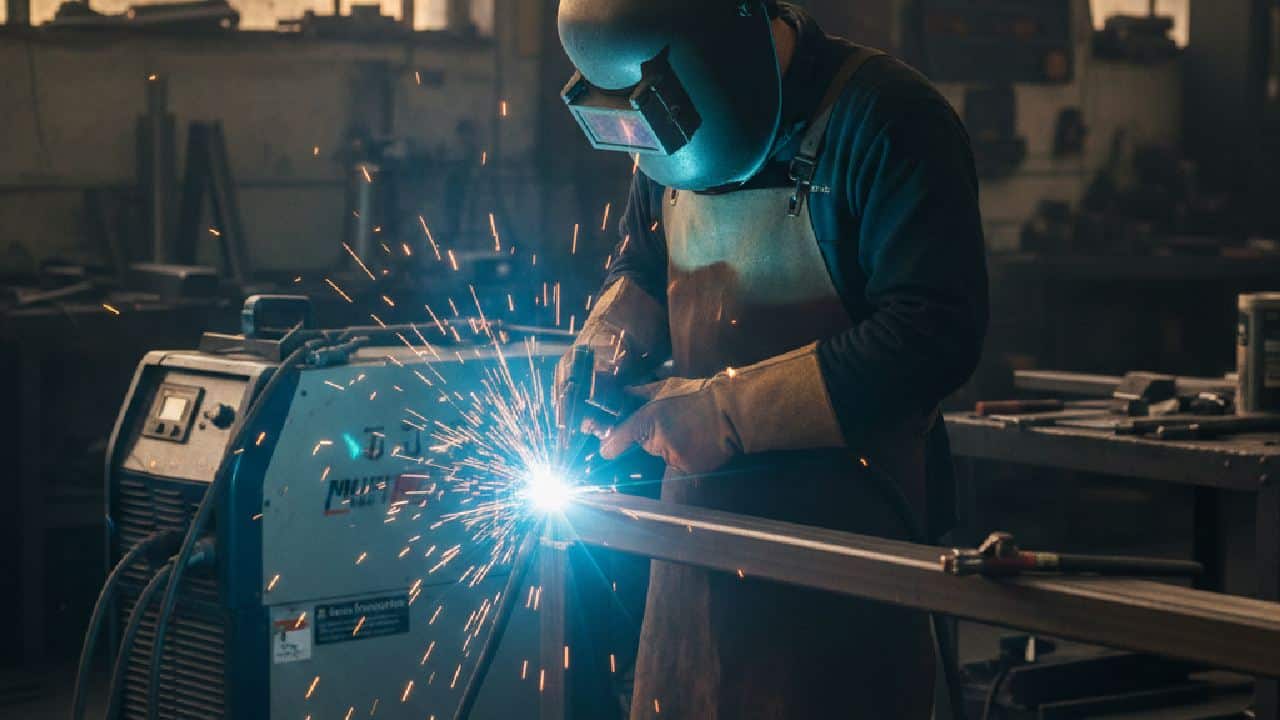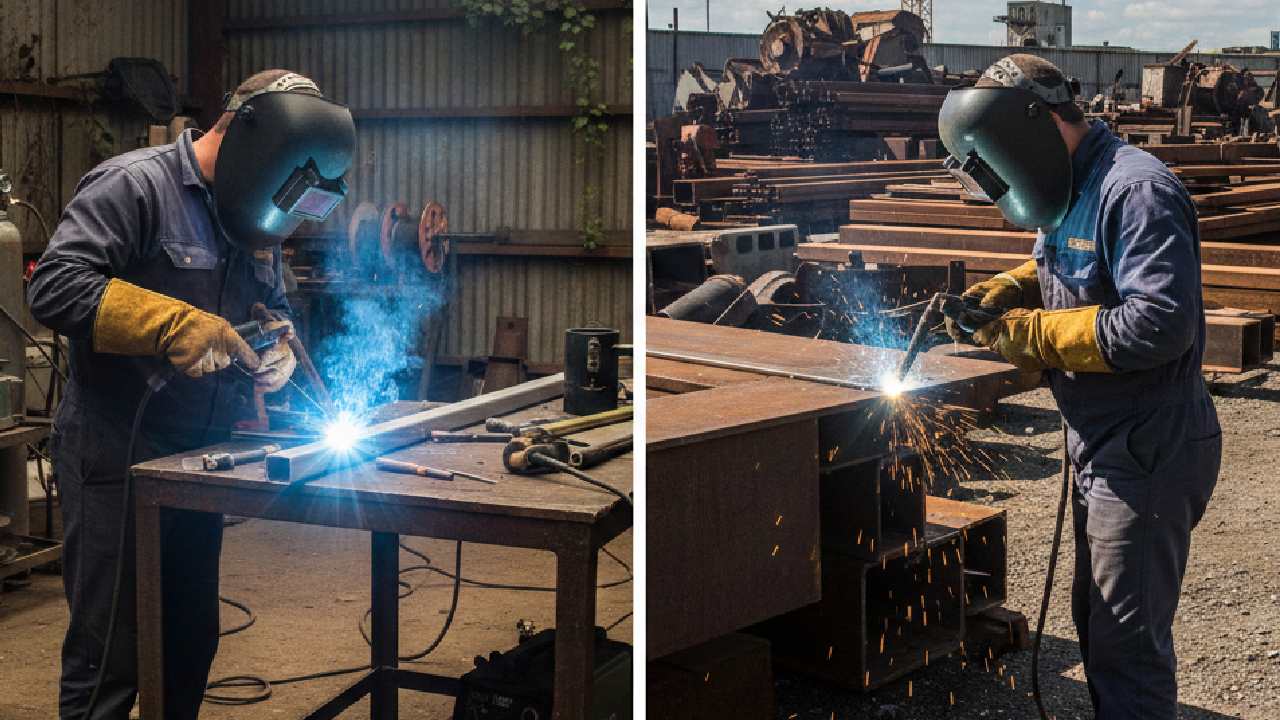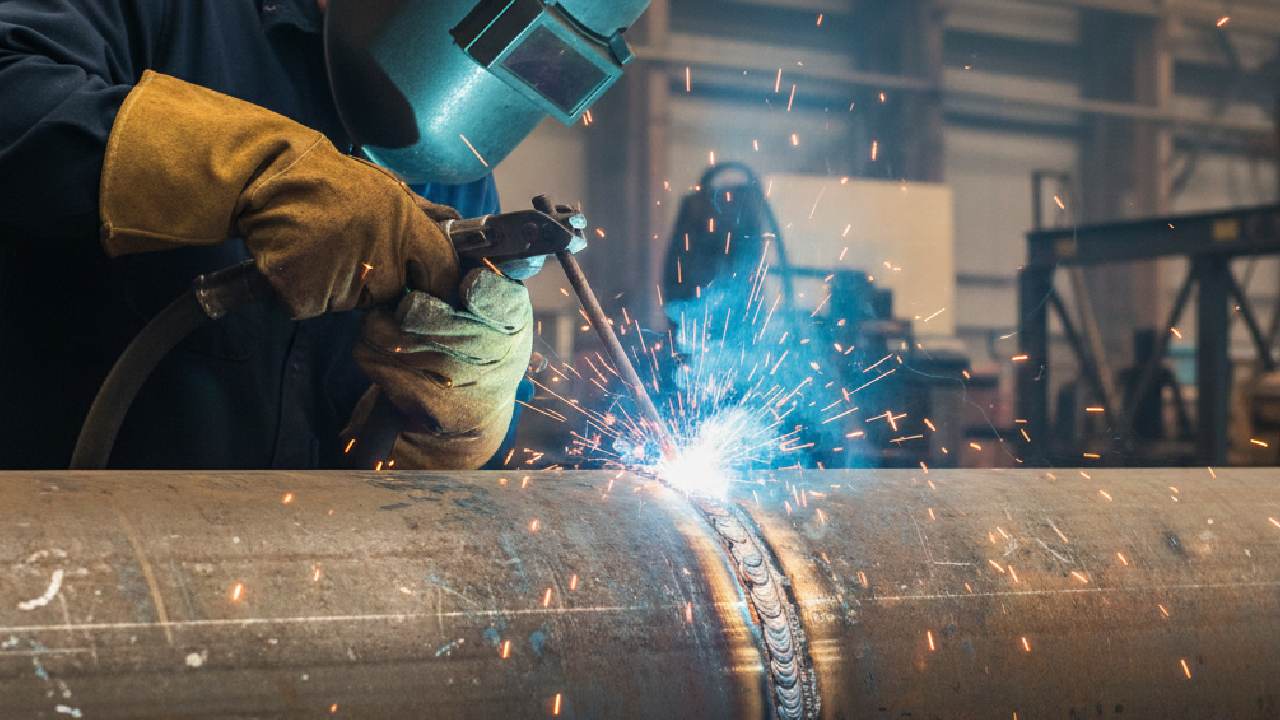Legendary technology pioneer Henry Ford once said, “Before everything else, getting ready is the secret of success.” His wisdom rings true even when gearing up your workshop rather than revolutionizing manufacturing. The welding equipment you choose demands serious consideration – the brand matters tremendously.
Come with me! We’ll explore the best welder brands in 2025 based on key factors like build quality, arc performance, features, warranties, and overall value. For taking on welding projects daily or just occasionally firing up a welder for DIY work, you want gear that makes the job easier, not harder. The best brand welders Simply work better and last longer. They may carry higher price tags, but they’re worthwhile long-term investments that pay dividends in results.
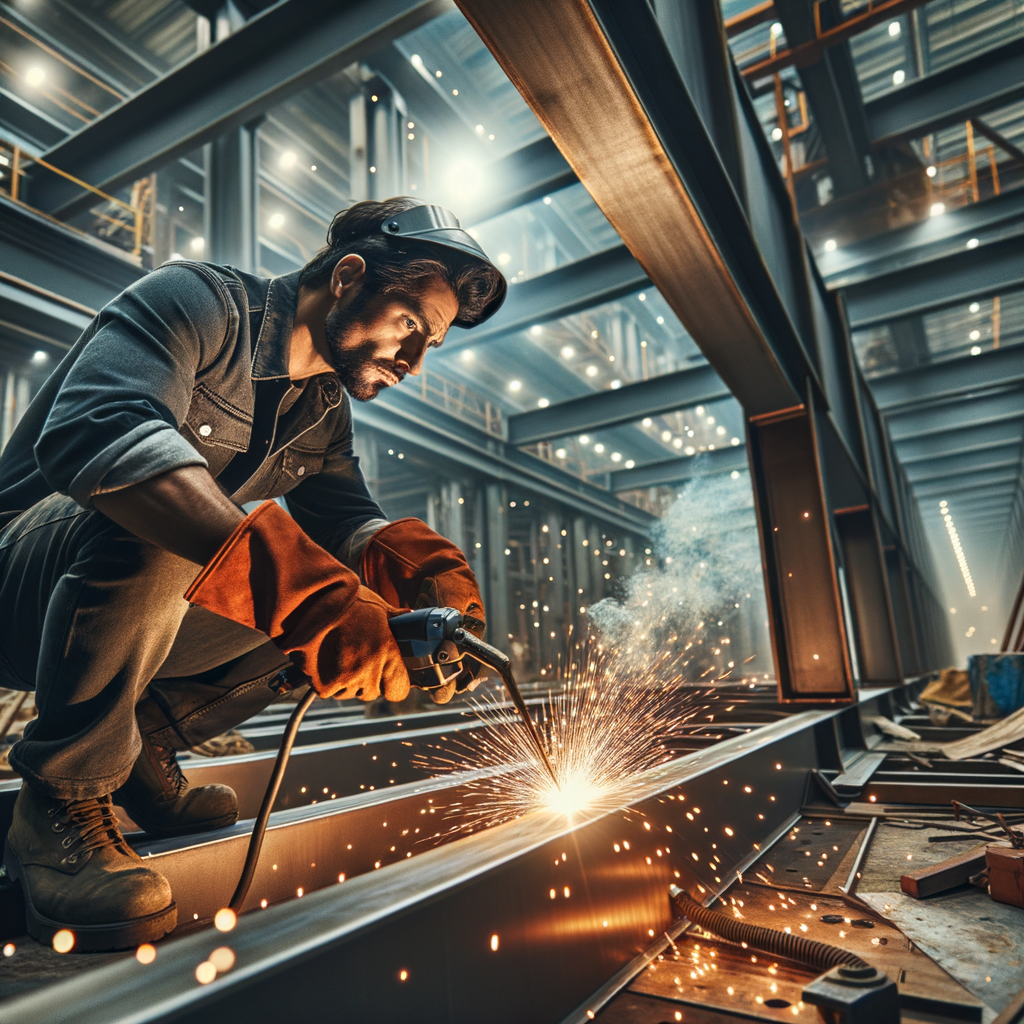
If you’re looking to upgrade your welding equipment, this review provides crucial insights to guide your purchasing decision. Let’s get started!
Top 10 Best Welder Brands
When we talk about exceptional welding equipment, these 10 manufacturers stand at the pinnacle. Their decades of experience, rigorous quality control, and constant innovation have earned the trust of everyone from full-time metalworkers to weekend DIY warriors. While their products may cost more upfront, they deliver substantial returns through reliable performance and unmatched results.
Below is a quick snapshot of the top welder brands in 2025. Click any brand to jump to the detailed review.
This list represents the gold standard — let’s explore what cements their status as the best of the best!
1. Miller Electric

As one of the largest and most well-known brands in welding, Wisconsin-based Miller Electric has been at the forefront of the industry since its founding in 1929.
Miller targets professional workshops, manufacturers, and schools, producing a full spectrum of advanced MIG, TIG, stick, and multi-process welders. Their renown stems from exceptional build quality and intuitive designs geared towards experts. While Miller equipment commands premium prices, loyal customers happily pay more knowing they’ve invested in products made to last.
The rock-solid Millermatic® 255 is a prime example, with its smooth dual-wire welding capabilities and industrial durability to tackle project after project. For those seeking top-tier solutions from a legacy American brand, Miller rarely disappoints.
2. YesWelder – Innovation Meets Affordability

Founded in 2006, YesWelder burst onto the welding scene with a bold vision—to make quality welding equipment accessible to everyone. Through direct business models and efficient manufacturing, they deliver advanced, multi-process welders packed with features at prices that transform the industry’s value expectations.
Rather than focusing solely on industrial settings, YesWelder also prides itself on catering to hobbyists and home enthusiasts. Their innovative product line spans TIG welder, MIG, stick, and multi-process welders featuring the latest technology to tackle projects both large and small. Models like the YesWelder MP200 5-in-1 further push boundaries, integrating a welder and plasma cutter for efficiency.
Beyond just equipment, YesWelder builds an engaging brand identity through customization and community. Creative solutions like welding helmets featuring various stylish and artistic outer shell designs created by multiple artists showcase their willingness to experiment. An active social media presence connects YesWelder with its loyal and growing customer base.
As YesWelder continues disrupting welding equipment conventions in the name of quality, innovation, and affordability, it shows no signs of slowing momentum. YesWelder delivers a unique value proposition to stand out in the welding world for companies and distributors looking to align with an up-and-coming brand.
3. Lincoln Electric

Founded in 1895 and headquartered in Cleveland, global giant Lincoln Electric has pioneered welding technology for over a century. Like Miller, Lincoln Electric supplies a wide selection of manual and automated solutions for industrial fabrication along with specialty equipment for training centers. Renowned for their ruggedness and reliability, Lincoln welders match exceptional performance with intuitive controls and user-friendly operation.
Most carry substantial price tags but deliver value via Lincoln’s signature build quality and extended warranty protection. The Lincoln Electric Ranger® 305G exemplifies their commitment to excellence as a nimble, multi-process dynamo engineered for demanding fieldwork. When failure is not an option, Lincoln Electric answers the call.
4. ESAB
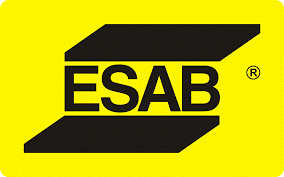
Swedish engineer Oscar Kjellberg paved the way for modern welding when he created the first coated electrode in 1904. This breakthrough led him to establish Elektriska Svetsnings-Aktiebolaget (ESAB) and launch revolutionary welding solutions still used today.
Now an international leader in welding supplies and equipment, ESAB leverages generations of expertise to serve heavy industry and high-end fabrication shops. While not the most affordable brand, their dedication to innovation and exacting quality control translates to products that perform flawlessly even under punishing demands.
Take their Warrior® 500i multiprocess welder, equally adept at pipework, facility maintenance, and structural fabrication thanks to adaptive controls and meticulous engineering. When failure absolutely cannot happen, ESAB delivers the best welding brands.
5. Hobart

ITW’s Hobart welding brand targets everyone from career metalworkers to casual hobbyists. Founded in 1917 by C.C. Hobart as an electrical manufacturer, Hobart built their inaugural welder in 1925 and never looked back.
They married industrial reliability with affordability to cement their reputation among small operators. Hobart leverages tech from sibling welding giant Miller to produce condensed, simplified versions perfect for home garages and light fabrication.
A shining example is their Handler® 210 MVP MIG welder, packing multi-voltage versatility, smooth flux-cored operation, and a durable enclosed drive system into an ultra-portable package. While costing less than commercial brands, Hobart still commands steeper prices than import welders — but their trusted quality and support help justify the extra cost for many buyers.
6. Eastwood
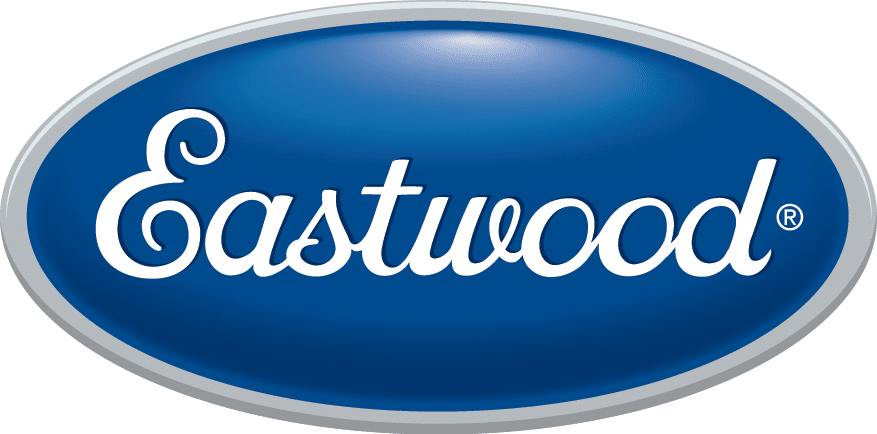
While many top welding brands focus on professionals, Eastwood bursts onto the scene in 1978 with the weekend tinkerer in mind. Founded by hands-on auto enthusiast Curt Strohacker, Eastwood built their reputation caring for the hobbyist niche that larger competitors ignored. They offer a wide range of excellent welders specially designed for home garages and small shops at reasonable prices.
A highlight is their Versa Cut 60 plasma cutter, packing industrial cutting capacity from 1/4” steel plate to 5/8” aluminum into a compact, wallet-friendly package. Between approachable pricing and a 3-year warranty unheard of at this tier, Eastwood earns serious value points for casual users wanting pro-tier capability without the painful price tag.
7. Forney
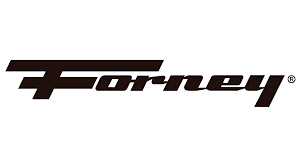
Dating back to 1932, few welding manufacturers boast as long and storied a history as family-owned Forney Industries. While they provide solutions for heavy industry, over eight decades Forney has honed an ability to deliver easy-to-operate equipment on a budget. Their diverse catalog runs the gamut from professional-tier down to entry-level welders for around $400, letting buyers choose their ideal balance of quality and cost.
A shining example is the Forney 324 140-amp MIG welder: simple controls and plug-and-play operation at a fraction of a big brand price. However, beware of the short 90-day warranty on lower-end units. While affordable, expect to pay nearer $1,200+ for Forney’s commercial-worthy welders backed by a generous 5-year warranty. On a budget, though, few welding machine brands rival Forney’s accessibility.
8. Titanium
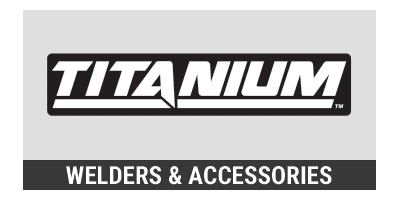
Harbor Freight’s Titanium line offers a budget-friendly taste of quality welding without the painful price tags of elite brands. Harbor Freight launched the Titanium label in 2017, packing great features and solid performance into cheap import welders accessible for home hobbyists on a strict budget. However, beware of the low 90-day warranty, indicating Titanium cuts some corners.
While inexpensive compared to Miller or Lincoln, Titanium struggles to match specialists like Eastwood or YesWelder in value. Still, welders like the Titanium MIG 170 stand out for user-friendly flux-cored operation and handy accessories catering to first-timers. When every penny counts, Titanium merits consideration — just ensure proper care and maintenance since their warranty won’t cover long-term issues down the line.
9. Fronius
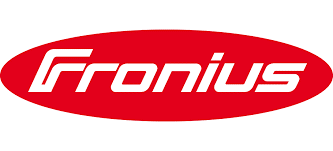
This innovative Austrian manufacturer enjoys substantial niche appeal for its specialized welding solutions. Founded in 1945 by inventor Günter Fronius, Fronius thrives on customization, using high-end features like battery operation and cold metal transfer (CMT) technology to tackle unique industry challenges.
However, such specialization and top-tier quality come at a steep price — most Fronius units run $2,000 minimum. While undoubtedly impressive for enterprises able to justify the investment, Fronius sits squarely in the commercial realm, lacking the affordability and flexibility prized by smaller owner-operators and hobbyists. Exceptions like the battery-powered TransSteel 3000 highlight Fronius’ potential across applications but largely remain a privileged taste for welding connoisseurs.
10. Everlast
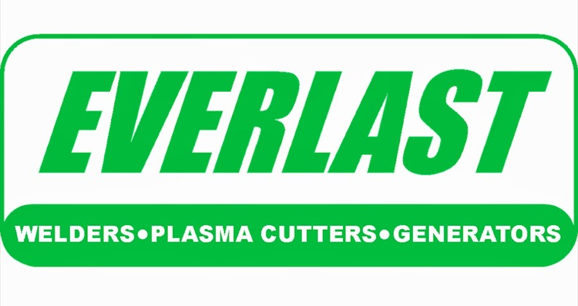
San Francisco startup Everlast married import affordability with quality components to earn widespread recognition for its value proposition. Founded in 2004, Everlast waited until 2008 to debut modern IGBT inverter technology, quickly gaining fans for smoother, more portable performance.
Models like their PowerARC 160STH shine for approachable pricing plus rare features like high-frequency starts. However, cheaper base-model units sacrifice some frills and use older electronic designs.
Dedicated hobbyists should compare carefully — brands like Eastwood lack extras but provide sturdier construction at similar costs. Nevertheless, highlights like Everlast’s generous 5-year warranty on certain welders signify confidence even entry-level buyers will appreciate long-term.
How to Choose the Best Welding Machine
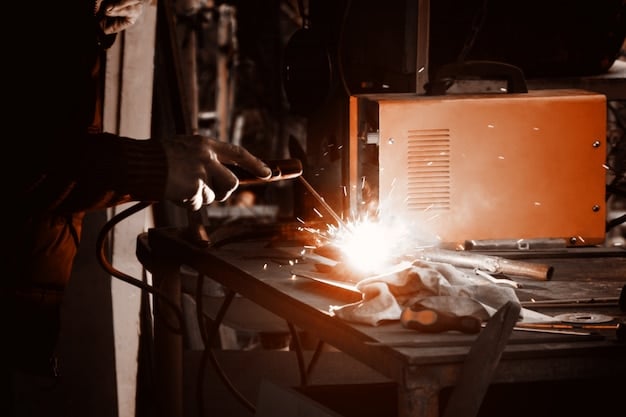
With so many models and configurations available, selecting the right welder for your needs deserves careful evaluation. While pricier brand-name welders promise better performance and longevity, more affordable options exist for casual users unwilling to spend thousands.
By prioritizing key factors like intended workload, power requirements, duty cycle ratings, and portability, you can identify the ideal balance of quality and value.
Assess Your Workload
Consider what materials you expect to weld most often along with their thickness. Thin sheet metals like automotive panels permit smaller, more portable welders while a working 1⁄2” steel plate needs ample current and solid-duty cycle ratings to prevent premature wear. Complex metals such as aluminum often benefit from specialized welders with waveform fine-tuning instead of generic models.
Review Power Specifications
Many moderate welders run on standard 120-volt household current but industrial models require 240-volt connections. Some welders offer dual voltage capability to tackle lighter tasks portably via extension cords and then switch to 240V for maximum power in the shop. Those with strict budget limits should ensure adequate power is on hand rather than paying electricians to upgrade infrastructure solely to enable a large welder purchase.
Compare Duty Cycle Ratings
Duty cycle indicates how many minutes within a 10-minute window a welder can sustain maximum rated output before needing to cool off to prevent internal damage. Budget brands advertise misleading peak amperages and then list unrealistic 100% duty cycles that severely overstate real-world capacity. Quality welders balance amperage and sensible duty cycle estimates around 40-60% at max power. Higher is better for continual welding but 60% sufficiently facilitates most applications without demanding excessive cooling downtime.
Assess Portability Requirements
Home hobbyists likely want a compact, lightweight welder for garage projects, while workshop owners need machines permanently installed on carts or benchtops. Fortunately, most leading brands offer portable inverter welders for travel and configurable shop models integrating wheels and cylinder racks. Just ensure any special installation needs are met before purchasing equipment requiring hardwired electrical connections.
By realistically assessing workload, power, performance, and mobility needs beforehand, buyers can confidently select top welding brands that deliver precisely the right specifications without wasted capability or disappointing limitations. Test different models when possible and consult welding professionals to make the most brilliant match.
Conclusion
| Miller | Great performance, high reliability, expensive |
| Lincoln | Good performance, high reliability, high pricing |
| YesWelder | High quality, great performance, affordability |
| Eastwood | Good quality, reasonable prices |
Miller and Lincoln boast over a century of welding excellence, commanding premium pricing given their unmatched performance and extreme reliability. While beneficial for high-workload professionals, those on tighter budgets gain better cost performance from YesWelder. Moreover, YesWelder bridges the gap, providing hobbyist options and industrial-grade equipment rivaling top manufacturers at more affordable investment points.
Given competitive advantages around innovation and value, YesWelder rises quickly as a well-rounded welding brand catering to light and heavy fabrication needs at prices working users will appreciate. When choosing equipment, welders must balance factors like longevity, quality, and budget for their situations.
All these industry leaders deliver advanced solutions built to last years rather than months. By matching world-class technology to your experience level and budget, you gain a versatile ally in precision welding to help unlock new project potential.
FAQs
Do higher-priced welding machines perform better than cheaper brands?
Generally, yes, brands like Miller and Lincoln command higher pricing because of exceptional build quality and features. However, affordable options from companies like Everlast and Eastwood can still produce high-quality results on par or sometimes exceeding overpriced competitor products. It depends on your needs and budget priorities.
What is the average lifespan of a quality welder?
While cheap import options may poop out after a year or so, top-name brand welders should last anywhere from 5-10 years minimum for an average home user. Especially if maintained correctly, expensive professional units can operate trouble-free for decades of continual service. Manufacturing quality matters for longevity.
How difficult is it to learn how to use a common TIG welder?
While demanding more skill in technique, TIG welders have never been more user-friendly for beginners with flexible settings and easy-to-understand features. The main considerations are adequate ventilation and personal protection. Then with practice using scrap metal to perfect torch handling, most newcomers can execute clean penetration welds within a few weeks.
Can any old welding helmet be used with new inverter machines safely?
Not necessarily, older passive welding helmets lack adjustable lens shade settings and may not filter enough light generated from inverter welders. Safer auto-darkening helmets will adjust lens shade levels automatically to protect vision and provide superior visibility. Buy helmets designed specifically for inverter welding units.
Is there a difference in maintenance needs between MIG, TIG and stick welders?
Stick welder generally requires less care beyond occasional electrode clamp cleaning, whereas MIG welder and TIG welders should receive regularly scheduled wire liner and torch tip replacements. Also clean MIG gun nozzle spray diffusers and check for wire looseness in drives. Follow all manufacturer maintenance recommendations provided in manuals.
